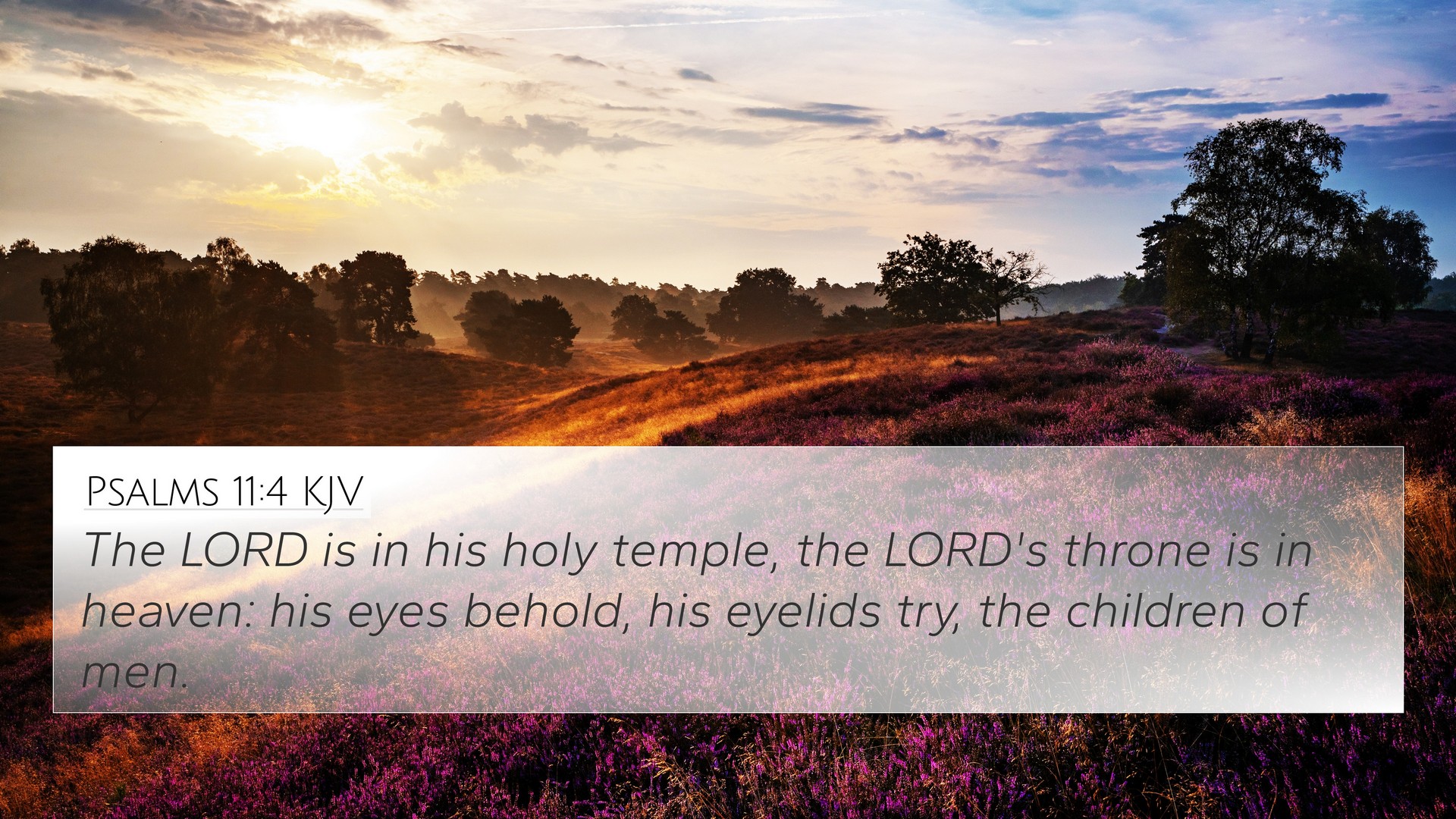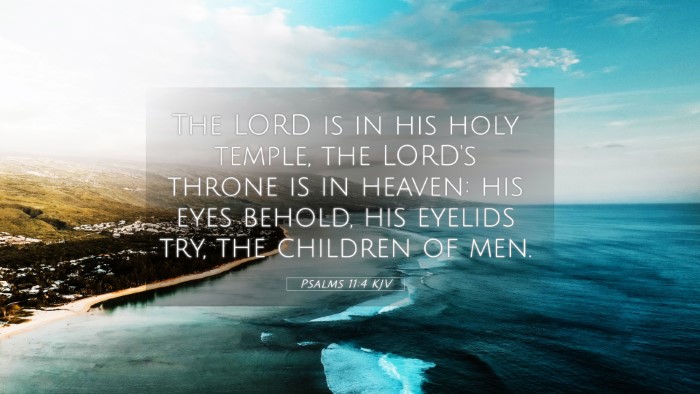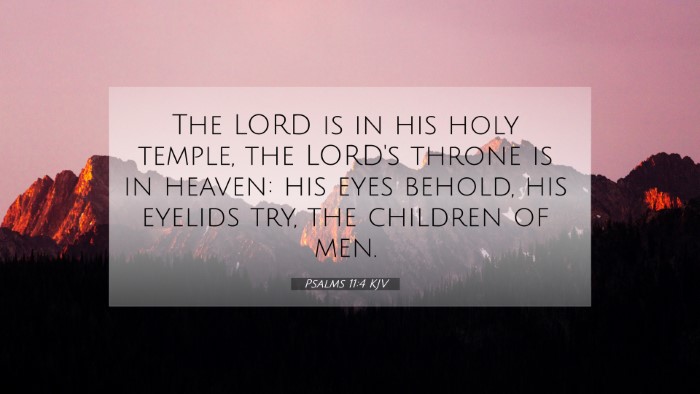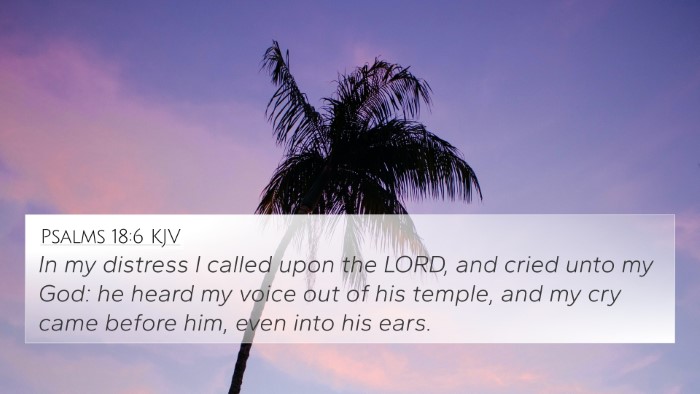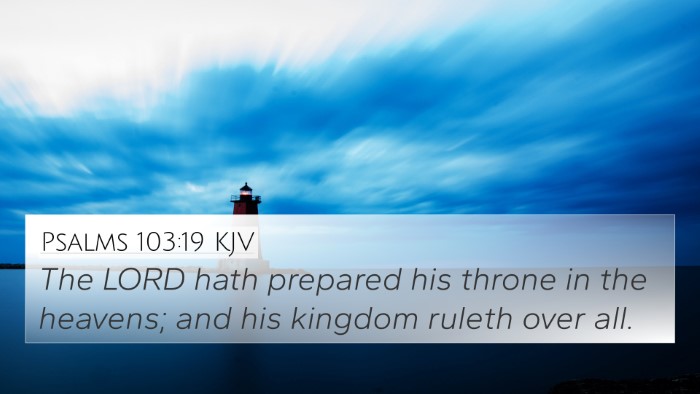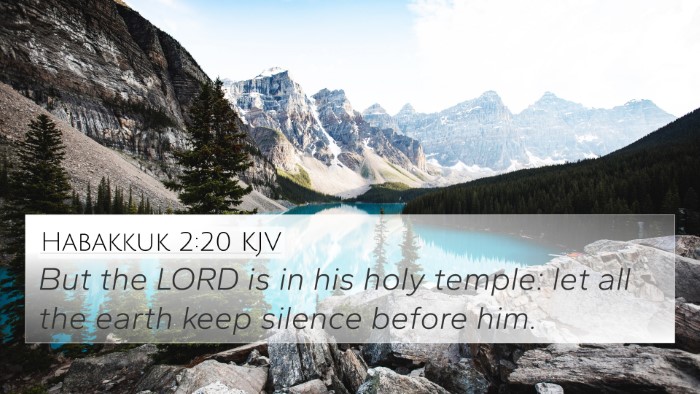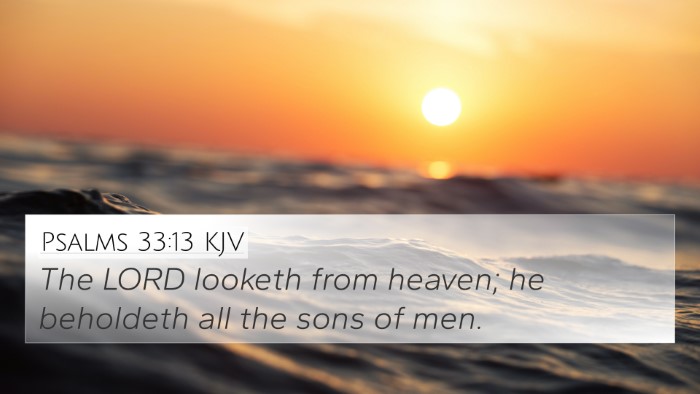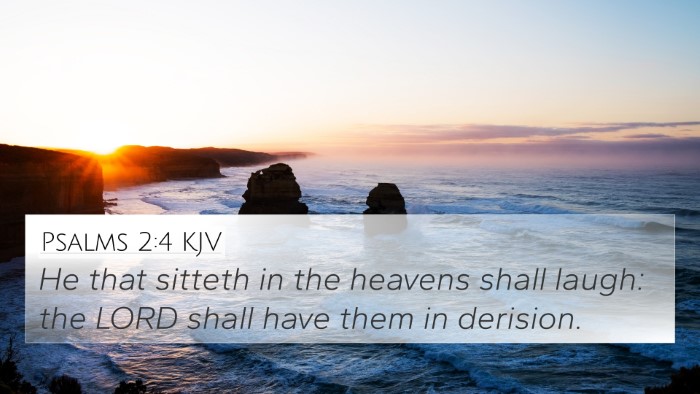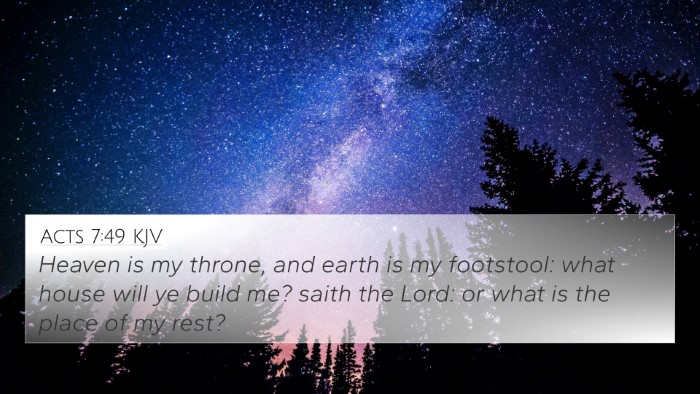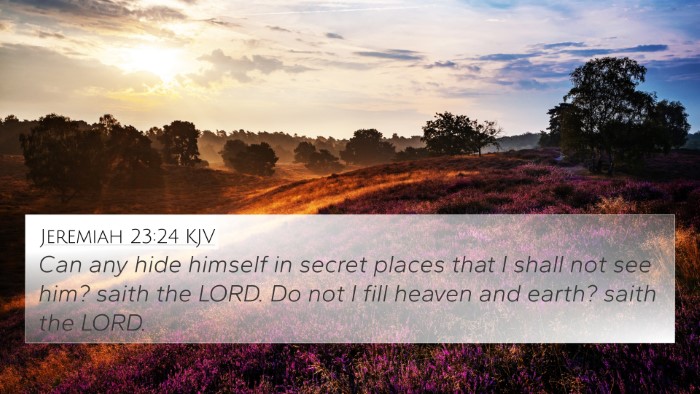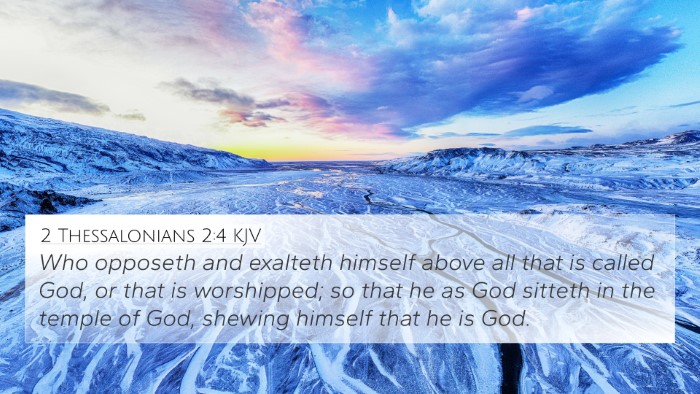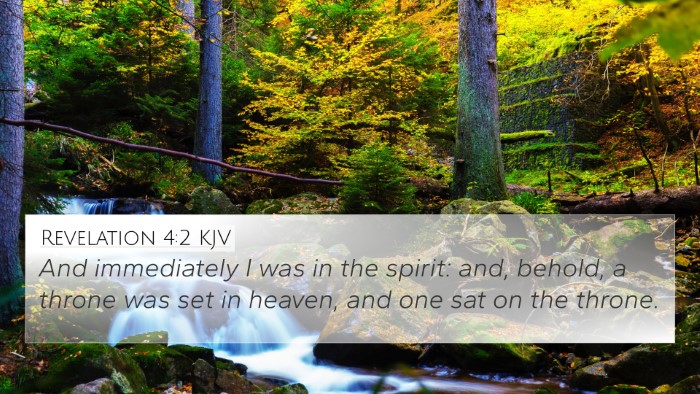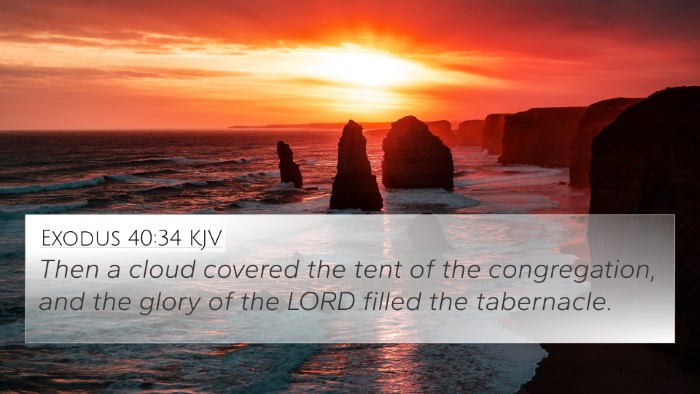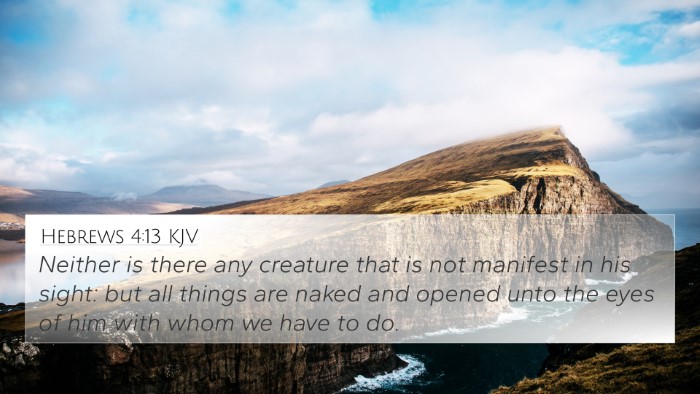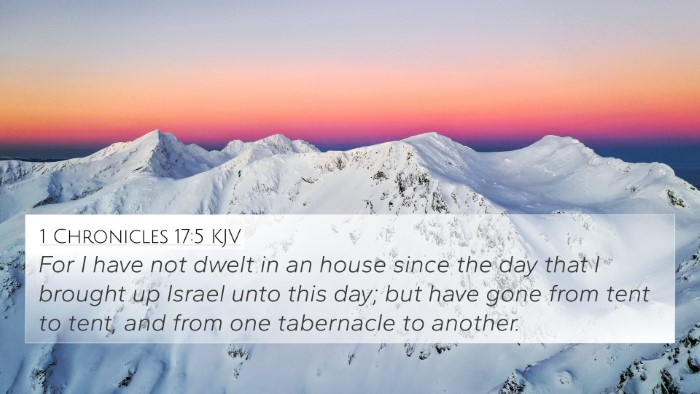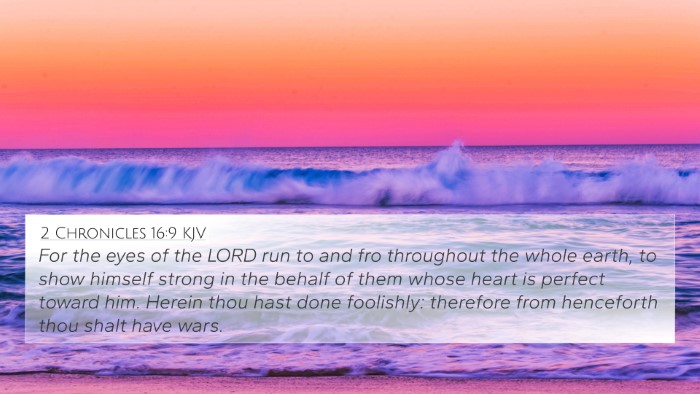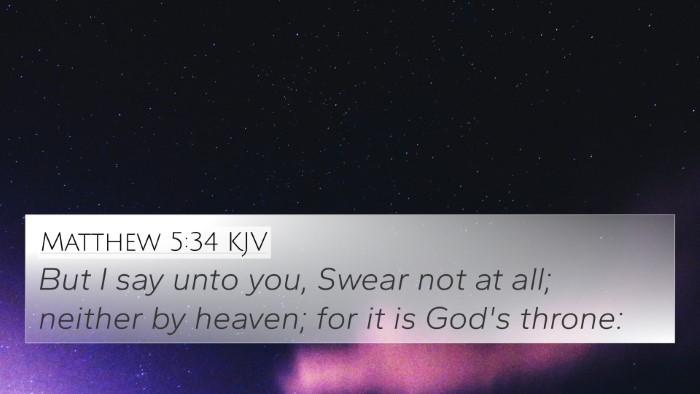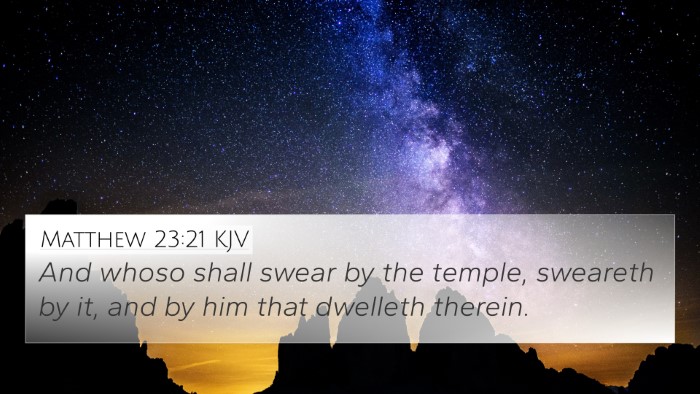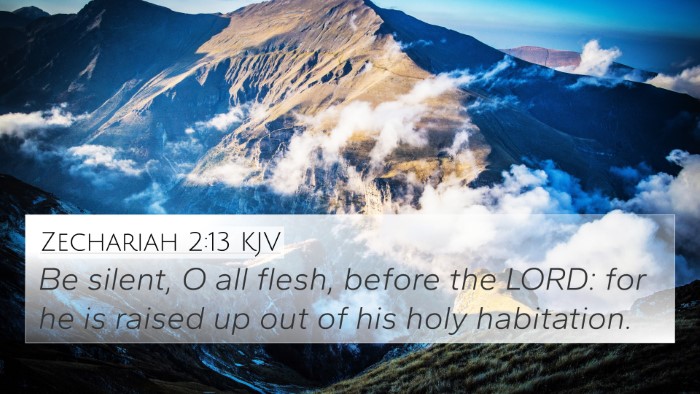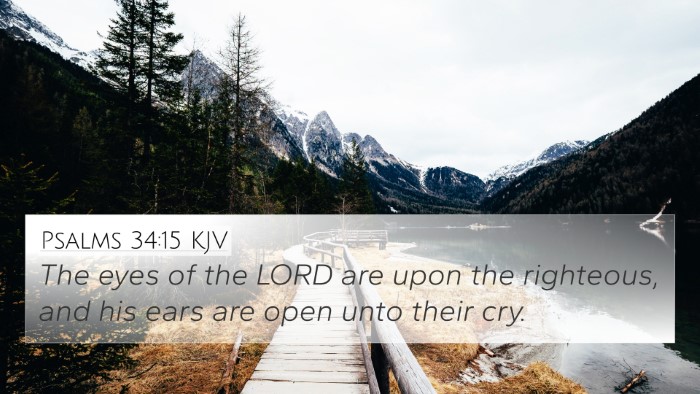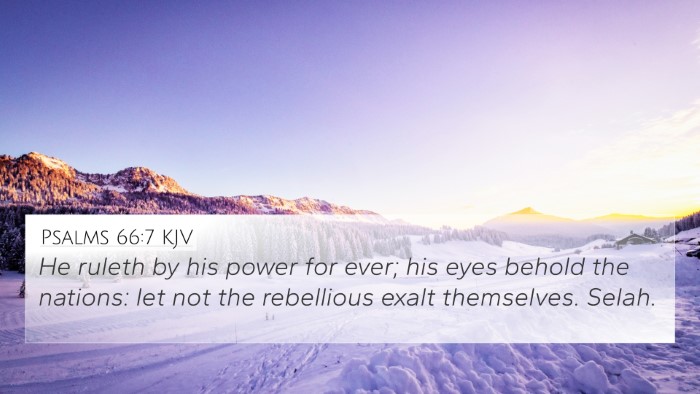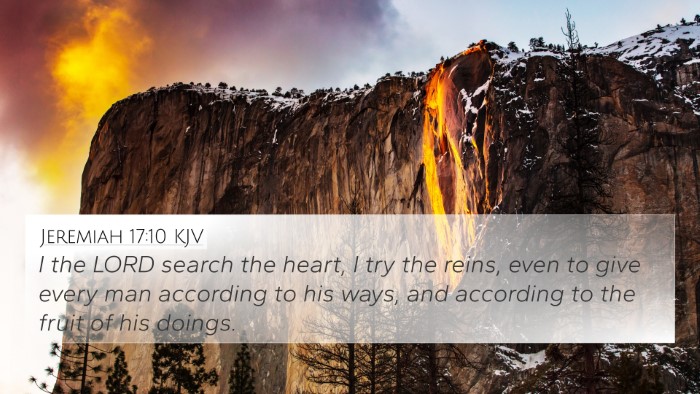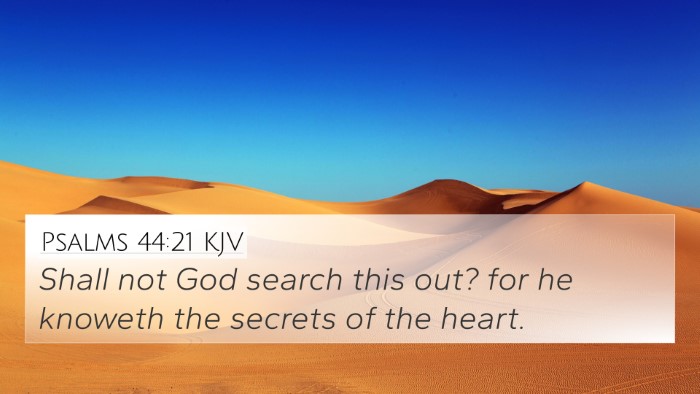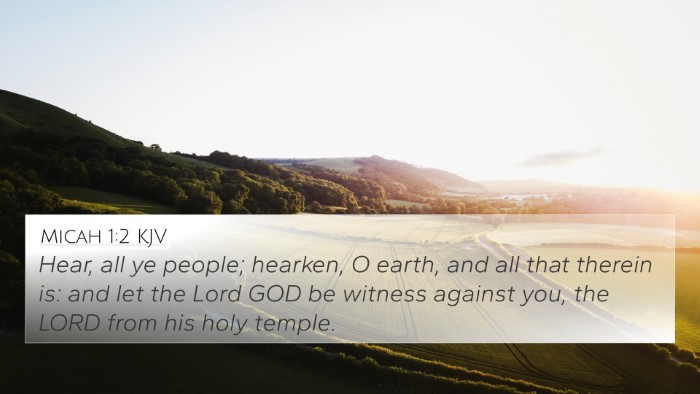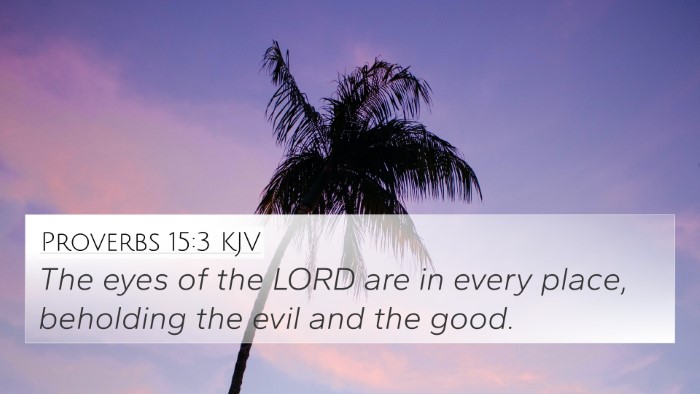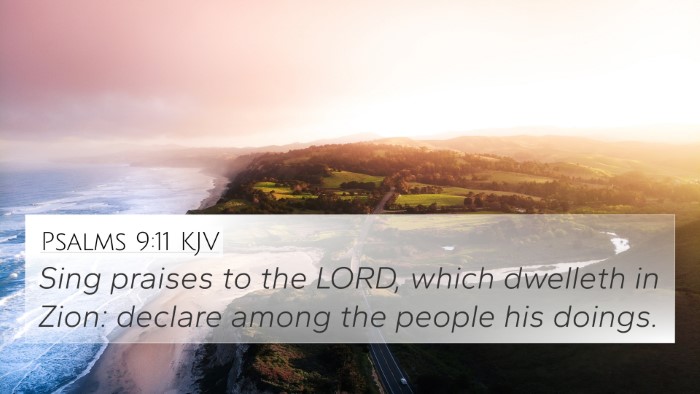Understanding Psalms 11:4
Psalm 11:4 reads: "The Lord is in his holy temple; the Lord's throne is in heaven; his eyes behold, his eyelids test the children of men." This verse emphasizes God's omnipresence and His sovereign rule over all creation. Here, we delve into a comprehensive interpretation using insights from esteemed public domain commentaries like those of Matthew Henry, Albert Barnes, and Adam Clarke.
Divine Sovereignty
This verse highlights God's sovereignty. Matthew Henry points out that despite turmoil and challenges, God remains in control. His throne in heaven implies authority over earthly affairs. Barnes elaborates on this, stating that God's heavenly reign assures believers of His ultimate oversight and governance.
God's Omnipresence
Adam Clarke emphasizes God's omnipresence, stating that God is always aware of human actions and intentions. The phrase "his eyes behold" signifies God's unceasing observation of humanity. This assurance is crucial in understanding the character of God, who is not distant but fully engaged with the world.
The Significance of the Holy Temple
Henry explains the importance of God's holy temple, symbolizing a place of worship and the divine presence. This represents stability for believers and a reminder that despite external chaos, God's sanctity remains untainted. Clarke adds that being in His holy temple signifies a realm of perfection and righteousness, underscoring His moral authority.
Testing of Humanity
The phrase "his eyelids test the children of men" suggests an active role in evaluating human conduct. Henry notes that God’s tests are intentional, aimed at discerning faith and intentions. Barnes mentions the concept of divine judgment, positioning God's observations as a perpetual examination of righteousness among humanity.
Connections Between Bible Verses
Psalm 11:4 is interconnected with several other scriptures that echo themes of divine observation and sovereignty:
- Proverbs 15:3: "The eyes of the Lord are in every place, keeping watch on the evil and the good."
- Isaiah 66:1: "Heaven is my throne, and the earth is my footstool. Where is the house that you will build for me?"
- Psalm 33:13-14: "The Lord looks from heaven; he sees all the children of man; from where he sits enthroned he looks out on all the inhabitants of the earth."
- Jeremiah 23:24: "Can a man hide himself in secret places so that I cannot see him? declares the Lord. Do I not fill heaven and earth? declares the Lord."
- Hebrews 4:13: "And no creature is hidden from his sight, but all are naked and exposed to the eyes of him to whom we must give account."
- Psalm 139:7-10: "Where shall I go from your Spirit? Or where shall I flee from your presence?"
- 1 Peter 3:12: "For the eyes of the Lord are on the righteous, and his ears are open to their prayer..."
Thematic Bible Verse Connections
Cross-referencing these scriptures reveals a rich tapestry of themes: the omnipotence of God, His unapproachable light, and the moral imperatives that guide believers. Understanding Psalms 11:4 within this context allows one to see the broader narrative of God’s justice, mercy, and attentiveness toward humanity.
Conclusion
In summary, Psalms 11:4 serves as a profound reminder of God's sovereignty and vigilance. By cross-referencing with related scriptures, believers are encouraged to find comfort in the knowledge that God oversees and examines our lives. This text inspires reflection on the connection between God's eternal presence and our daily lives.
Tools for Bible Cross-Referencing
Utilizing tools for Bible cross-referencing, such as a Bible concordance or Bible cross-reference guide, can enhance one’s study experience. Engaging in a comprehensive Bible cross-reference system allows a deeper exploration of themes and connections within the scriptures.
